Feature: IMPROV CLASS YIKES! JR. at Red Curtain Theatre with Jeff Ward
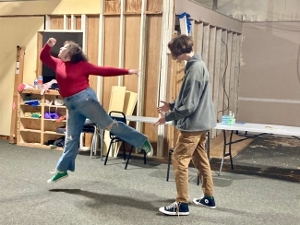
Theatre education is important to Broadway World, and we get excited when new programs pop up that benefit the community, especially our younger thespians. Red Curtain Theatre, 913 W Oak Street, in Conway, is now in its tenth year of offering various productions that cater to all ages. In companion with the shows, Red Curtain offers various classes for all ages in voice, dance, and theatre, which range from beginners to advanced performers. Broadway World was thrilled to be able to sit in on an Improv class of high school students, which was led by the amazing Jeff Ward.
Jeff Ward is the President of the board of directors for the Lantern Theatre in Conway, and keeps very active, both acting and directing, for the Lantern as well as Red Curtain Theater. His Lantern Theatre directing credits include: YOU'RE A GOOD MAN CHARLIE BROWN, THE NORMAL HEART, TITLE OF SHOW, and PRIVATE WARS. Jeff made his Red Curtain Theater Directorial Debut with LES MISERABLES: SCHOOL EDITION. He got another chance this past summer to sit in the director's seat with Red Curtain Theater's 2022 production of THE SOUND OF MUSIC. He is very happy that he recently became Red Curtain Theaters Improv Teacher and is having so much fun working with this incredible group of talented youngsters.
After the class, Jeff and the actors entertained my questions.
BWW: Why are you guys here? Why are you doing an improv class with my friend Jeff?
Farrah Sherman: I really love improv. Well, I actually didn't know I loved improv, but now I do. The second that I knew Jeff was teaching and all those people signed up, I knew I wanted to join. I have been around theatre for a long time, and the moment I started to like performing, I had to do something really quick out of nowhere. One of my favorite stories is that one time during Cinderella, both of her slippers were taken off stage, and out of nowhere I had to throw a slipper on stage. Now while it was hilarious, it wasn't something that was scripted. It was something I had to do in the moment, and then later I had to come up with a line on the spot in the same show. So, I realized I had a knack for just coming up with things on the spot. So, I realized that it doesn't have to be, like, panicky, it can be really fun.
BWW: alright
Jeff Ward: So, it's working off the premise that, whether or not they've all improved, if they've done a show, they've improved. It's having to come up with a line on the spot or creating a character and dialogue as a background character- that sort of thing. 
Lily Davies: Well, I started going to the theaters and acting when I was eight years old, and I really wanted to get better at it. I felt like if there was ever a time where someone forgot a line or I forgot a line, I would be able to come up with something really easy on the spot, so it doesn't look obvious that there's a pause. So, when Red Curtain started the improv class, my mom signed me up for it.
Eli Halter: I was lucky enough to do a show where you used sketch comedy, and I learned very fast that improv is a large part of acting in general. In sketch comedy, you have to learn to be on your toes, because that's what acting is. You are on your toes consistently and you never know what's going to happen. It's live theater, and you have to do it on the spot. If somebody messes something up, you have to just improv, and improv is just very, very important to acting and performing in general, because things constantly go wrong, and you can turn those mistakes into something a lot better than what was originally put there. Improv just makes things more interesting, and it makes it more organic.
Ainsley Epps: I've been doing improv for a few years now, and my first actual improv I did was I competed improv in my speech and debate tournaments, and we did really good in them, so I kept on doing it, and when my friends started offering improv classes, I was really excited to join them, because I love improv so much. These classes give me an outlet to do improv away from the competition aspect of it.
Jeff: These guys right here, I have to say, this is their first time they've joined us, but I bet you couldn't tell that this is their first night.
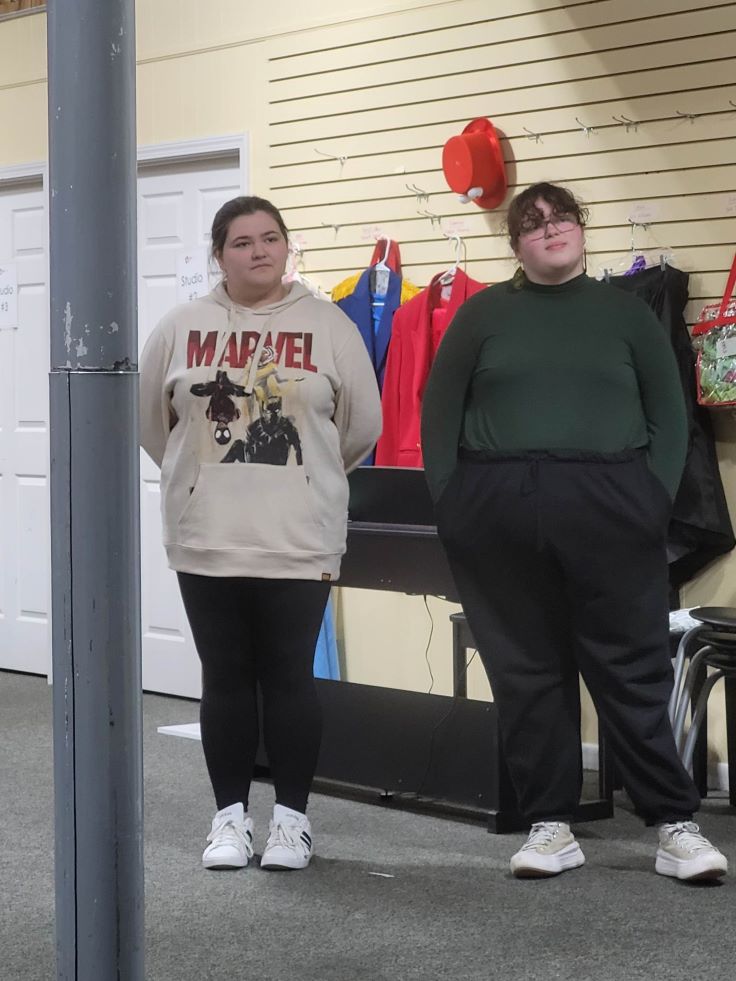 Mia Williams: Today was my first class, but I've done some simple stuff. I find that improve is really, really helpful in auditions, because obviously you don't know who you're gonna read for whenever you go in there, and if you have the basic knowledge of improv, it's really easy to just kind of make up this character choices on the spot, or if they ask you to change something, you know, you're able to adapt. One of the biggest things that improv teaches you is to adapt to your surroundings and adapt to other people- that kind of stuff. So, I think it's very helpful with auditions.
Mia Williams: Today was my first class, but I've done some simple stuff. I find that improve is really, really helpful in auditions, because obviously you don't know who you're gonna read for whenever you go in there, and if you have the basic knowledge of improv, it's really easy to just kind of make up this character choices on the spot, or if they ask you to change something, you know, you're able to adapt. One of the biggest things that improv teaches you is to adapt to your surroundings and adapt to other people- that kind of stuff. So, I think it's very helpful with auditions.
Jeff: Oh, it's interesting that you used the audition as an analogy, because that's really good. Everything you're going to learn in here, you can take with you. You can take listening- you're gonna need that. If you create five or ten characters and work on your physicality, you've got those characters in your bag of tricks. You don't want to be an actor that has a bag of tricks, but occasionally on the spot, somebody says 'hey this character is 92,' you know, you're gonna have to adapt, so it's interesting to think about it like that.
Sydney Madsen: I'm elaborating on what everyone else has already said, but most of us got into acting through the musical theater. We were all used to having scripted shows and set performances and a lot of singing and dancing all at the same time, but improv really does fine tunes some stuff. Like, when you're in the back and you're not the one speaking in front, and you're talking with the character beside you, improv teaches you that instead of just moving your mouth, you can have intention behind that conversation, and it just makes the show as a whole look more real.
BWW: Alright. So, why take this specific class?
Landon Wharton: I am still new to this theater. I came here in the summer last year (Sound of Music was his first show with Red Curtain). I came from Hot Springs, and down at my old theater, they didn't have any classes. They had plays, and that was it; that's pretty much all they did. So when I found out that Red Curtain did other stuff, it caught me by surprise, because I really wanted to do more stuff. This is a new theater to me, I really enjoy theater, and I wanted to get to know them a lot more than just doing the plays.
Kirah Jacobs: This is my first time ever doing anything theatre related. Last year, I was in forensics, and I had a couple of friends that went here, so then I followed their Instagram. Then, I looked on the website, and I saw that they had these classes. I thought that taking improv class would be fun, and I wanted to try something new outside of forensics, and so far, it's been going really good. 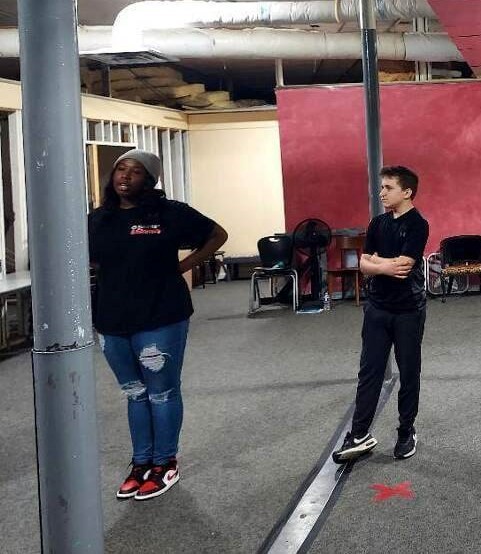
Jeff: I have to hand it to these guys. I may have totally shifted gears. There was another teacher that was doing this up until February 17th when I took over, so they've taken everything that I started with and just ran with it. We're all still kind of new to this, but it's been a lot of fun. We're practicing, well we're not really practicing, but our goal is that not only do we want to teach them the basics of improv, but we want to tie it back into musical theater and acting in general. Some of you may want to pursue improv, but for me when I took improv classes, I wanted to do the same as many of you, except I wanted to be able to have more confidence and think on the fly and not worry about looking silly- just staying in the scene, and if it's funny, it's funny, and if it's not, well...you can't be afraid to bomb.
BWW: What is your end goal for taking a class like this?
Sydney: It's really a big confidence booster for me. They kind of taught me to rely less on structure and getting everything down. So, my end goal is to have more fluidity in my performances and have more confidence overall. I want to be able to step into a scene without any prior prompts and stuff like that.
Lily: To add on to the first question a little bit, improv is useful there's ever a time where someone does pause or forgets a line in a show, we can use these skills to build the scene back up really quickly without there being any kind of a whole pause or anything like that. That's what I want to get from this class.
Farrah: One thing that I really like about classes is getting to hear the perspective of so many other people. I think that one of the things that made me really excited about having Jeff here is that while I worked with him on some plays, I've never gotten to see him as a teacher, so that was what I was really excited about the past couple of months. However, taking improv in general was just something that I wanted to do, because I love doing everything that involves theater. It's, like, my favorite thing in the world, so, having fun is how it started, but it's grown to getting different perspectives from different professionals in the theater community.
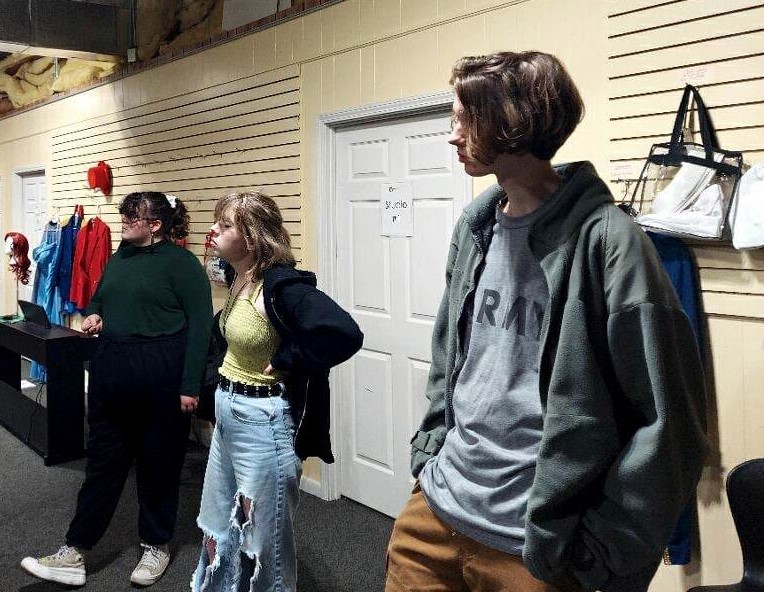 Eli: I don't currently take this class, but I used to when it was the other teacher.
Eli: I don't currently take this class, but I used to when it was the other teacher.
Jeff: You do now!
Eli: The reason I wanted to do improv was because it genuinely terrified me. The idea of going in front of an audience and having no script, at least nothing specific you have to say, is terrifying and many things can go wrong. I wanted to better myself; I wanted to better myself as an actor, because at the end of the day, acting is my biggest dream and my life, and I really, really would love to pursue acting as a career, and I feel that sometimes you have to go through the things that terrify you in order to improve yourself.
Lily: Could I add on a little bit? So this is kind of more like a real live situation that I had, and I don't know how well this goes with improv, but for some reason in my mind it connected it. At my sister's wedding, I didn't want to give a speech at first because the thought of that made me really scared. There were a lot of people at her wedding, but halfway through the speeches, I was like 'OK, I wanna give one, but everyone else has written their speeches.' So, I went up there with nothing written down, and I was just kind of saying whatever came to mind. At first, I was just thinking of a few things I had planned, but then as I kept talking, more thoughts just kept coming and coming to my mind that I could say, and so like after a while of building it up, I realized that it's easy to figure out things to say. 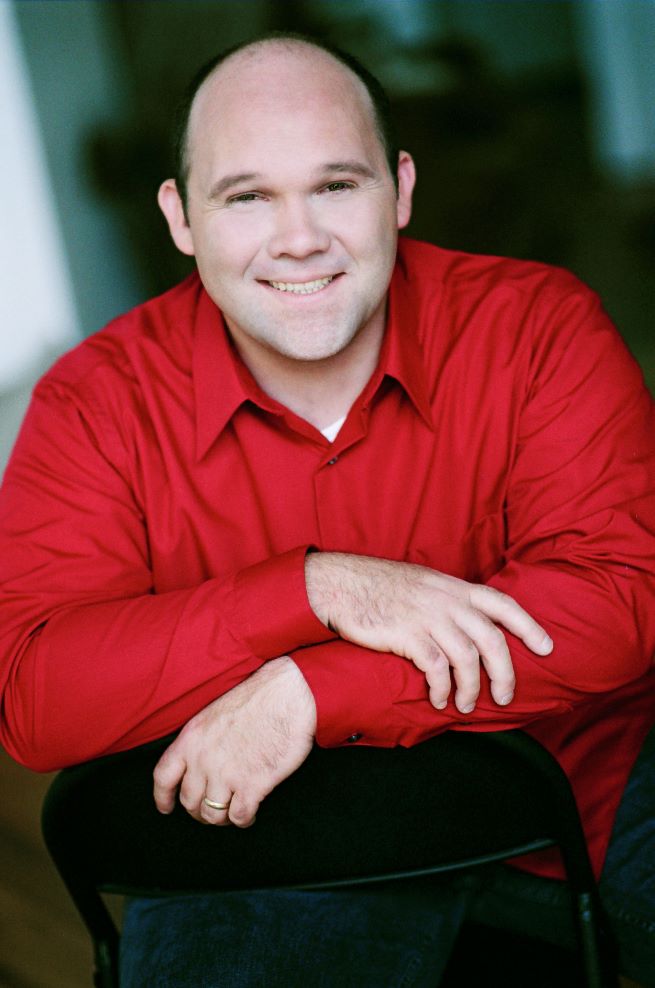
Jeff: So, basically we're just working on a few basic improv rules at a time and trying to take those and put them into practice with the idea being to just make us more confident, make us quicker on our feet, to completely learn the ABC's. (they laugh....you had to be there) You know, what I want these guys to take away from this class is to have the confidence when you walk into an audition or when you walk into a room to realize that you deserve to be there. Have that in your hand. Don't be cocky, be confident. Basically, we want them to be able to tell a story, listen physically, and learn to be in the moment.
I learned so much from this class. The teacher and students did a lot of exercises that I haven't seen. Red Curtain really steps it up when it comes to theatrical education. So, I had more questions, and turned to Farrah Sherman, who was gracious enough to indulge my curiosity.
BWW: Why are you part of the improv class?
Farrah: I find it important as an actor to broaden my acting abilities, and improv is a really important skill. I used to think it was all fun and supposed to be funny, and while in most cases it turns out that way, improv is so much more than that. It's really great character work and is useful in creating familiarity with other groups of actors.
BWW: How will you use the skills of this class in future performances?
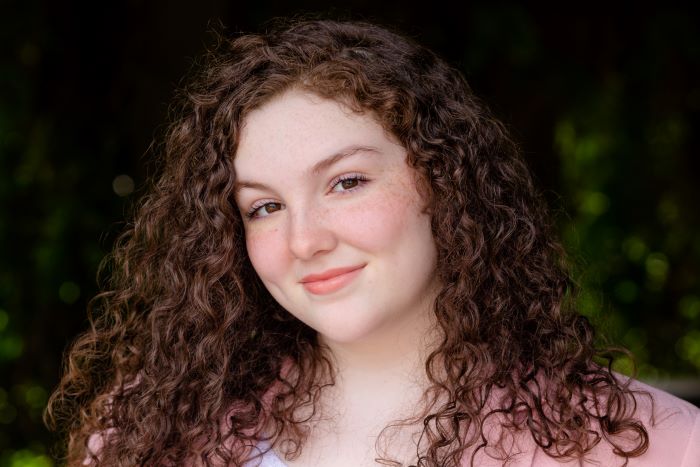 Farrah: Not only has it helped me with my confidence in everyday conversations, but it also has helped me in tricky situations on stage. One of my favorite situations happened twice in one performance. After a mishap, the stage was left still and almost on pause while everyone was trying to figure out what to do, I had the natural reaction to riff and create up a line on the spot to move the scene along. I realized improv is an excellent tool to use in tricky situations like that.
Farrah: Not only has it helped me with my confidence in everyday conversations, but it also has helped me in tricky situations on stage. One of my favorite situations happened twice in one performance. After a mishap, the stage was left still and almost on pause while everyone was trying to figure out what to do, I had the natural reaction to riff and create up a line on the spot to move the scene along. I realized improv is an excellent tool to use in tricky situations like that.
BWW: What other Red Curtain classes have you taken?
Farrah: I take just about everything I can, with the exception of piano lessons. I take voice lessons with Chris Turner, a variety of different dance classes with Christina Munoz Madsen and Todd Belin, I assist an acting class with Liz Parker, and of course take my improv class Y!kes Jr with Jeff Ward.
BWW: How does the improv class compare to the other classes?
Farrah: I've taken other acting workshops and had different improv teachers, however, Jeff's instruction has given me a different point of view on things. He does an excellent job of taking the time to clearly explain why we do what we do, and why we have the rules we have. It's definitely made me think and examine different techniques we use.
BWW: Besides theatre skills, do you think the improv class will assist you in other endeavors?
Farrah: Like I've said earlier, it has helped me and my friends who also take the class with everyday conversations. I have diagnosed general anxiety, and it gets especially worked up when attempting to seem professional, like presentations in school or auditions at local theatres. Improv has helped me quickly respond to questions asked of me during those "high stakes" situations. However, I'm not playing a character, I'm just me.
I appreciate Jeff and the students allowing me a glimpse into their class. For more information on how you can join YIKES JR or other Red Curtain classes, visit their website at redcurtaintheatre.com.
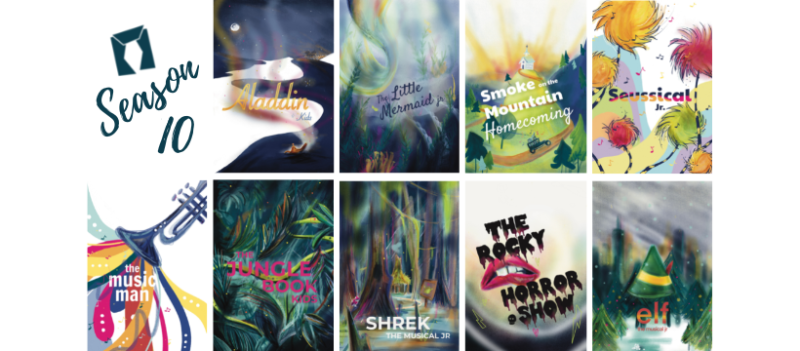
Comments

Videos

